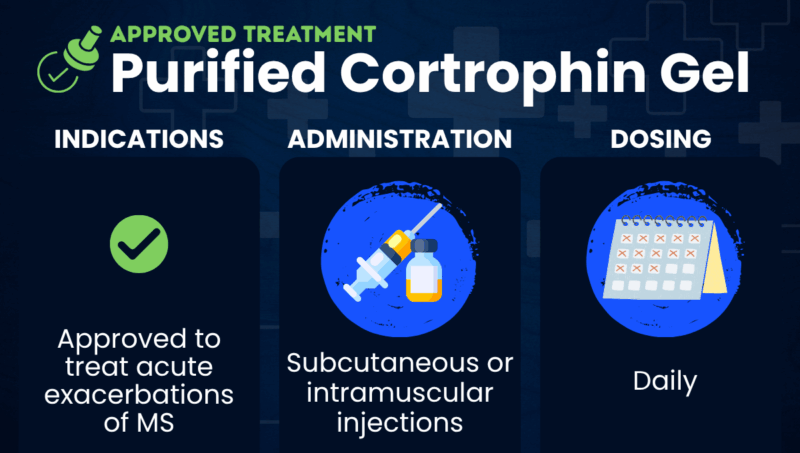
FAQs about Cortrophin Gel
Cortrophin Gel was first approved by the U.S. Food and Drug Administration (FDA) in 1954 to treat a number of inflammatory and autoimmune conditions, but its approval the management of acute multiple sclerosis (MS) relapses was not granted until 1977. While the therapy fell out of use for MS during the 1980s, the FDA approved its reintroduction into the U.S. market in 2021.
Animal studies suggest that Cortrophin Gel may cause harm to a developing fetus. Because of this, doctors should carefully weigh the potential benefits and risks before prescribing it to people who are pregnant or may become pregnant. Newborns exposed to the therapy during pregnancy should also be monitored for possible adrenal gland problems.
There’s no specific interaction between Cortrophin Gel and alcohol listed in the medication’s prescribing information. However, alcohol can interfere with some medications and worsen certain disease symptoms, so patients should ask their healthcare team whether and how much it is safe for them to drink.
In clinical studies, some people began to notice improvement within about three weeks of starting Cortrophin Gel treatment for a multiple sclerosis relapse. Response times, however, can vary, so healthcare providers are the best source of guidance on what to expect in each case.
Weight gain can occur in individuals on Cortrophin Gel treatment, but the therapy’s prescribing information does not list hair loss as a potential side effect. Patients should talk to their healthcare providers about any unanticipated effects from the medication.
 Fact-checked by
Fact-checked by 


